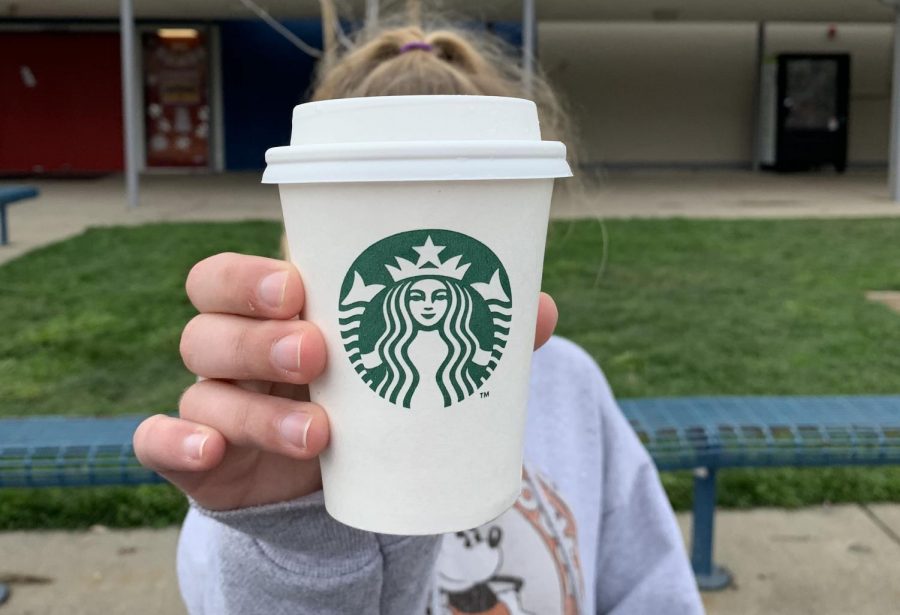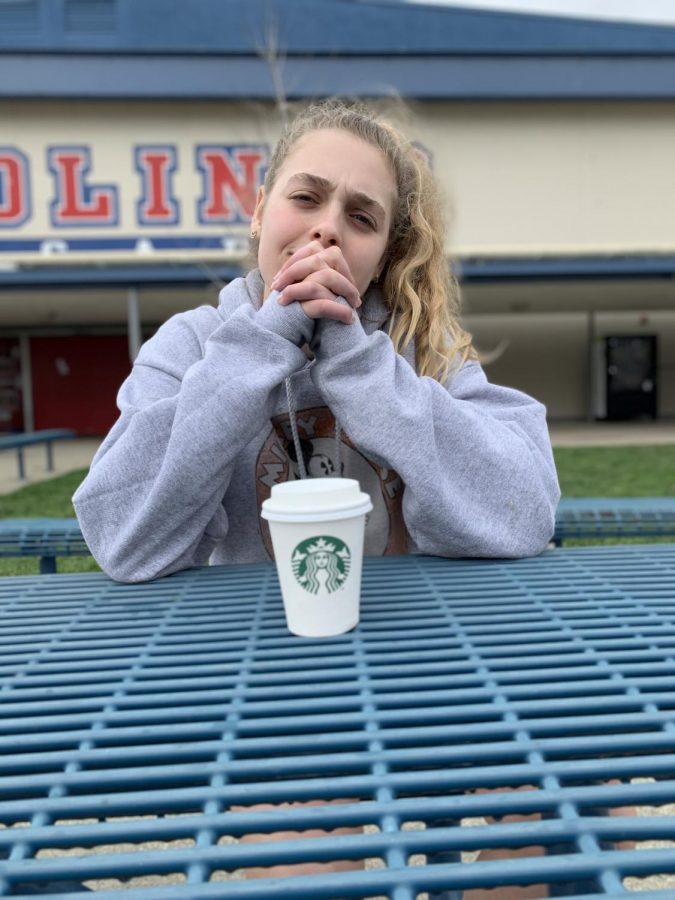Teen Caffeine Consumption Perpetuates Unhealthy Cycle
February 20, 2019
Like zombies, students shuffle from class to class during the 7 hour school day, fighting the urge to close their eyes and drift back into sleep. To combat drowsiness, more and more students are turning to caffeine, which can have disastrous impacts on their health.
Sophomore Julia Ortega has been brewing her own coffee every morning for the past year, and believes coffee helps her “function better in the morning.”
On some days, Ortega goes to the nearby Starbucks after school for a 2nd cup to recharge. “[If] I go to Starbucks after school to get a 2nd cup, I see so many other people from Campo ordering and drinking coffee,” said Ortega.
One such frequenter is sophomore Arlee Farrell, who has been a Starbucks gold member since she was 14 and spends around 200 dollars a month there. “I just love the taste of coffee, and I get headaches if I don’t drink it in the morning,” she said.
According to The Washington Post, “On any given day, almost 75% of U.S. children and teens drink caffeine.”
Concerns about stunted growth or other negative consequences of caffeine used to deter adolescent coffee consumption. However, with companies like Starbucks and Red Bull targeting children with their marketing campaigns, kids drinking Starbucks nowadays is absolutely ordinary.
While social norms have changed, the American Academy of Pediatrics still insists that “energy drinks have no place in the diet of children and adolescents.”
Human and Social Development teacher Stephanie Verbanszky agrees. According to Verbanszky, adolescent brains are going through critical change known as the pruning phrase, when used neural pathways are strengthened and unused pathways wither away in the prefrontal cortex of the brain.
“Because of all this change, their brains are particularity susceptible to chemical substances,” Verbanszky said. This means that the constant exposure to a stimulant such as caffeine can lead to lasting consequences, such as sleeping disruption and heart tremors, according to Medical News Today.
Caffeine, however, is not considered an “addictive” drug by the National Institution of Health and Drug Abuse (NIHDA). Although 1 can experience withdrawal-like symptoms if they do not drink caffeine as a daily coffee-drinker, the NIHDA considers caffeine infatuations a “dependency” rather than substance abuse.
While it may be labeled non-addictive, this does not diminish serious health concerns for teens.
In April 2017, 16-year-old high student Davis Allen Cripe consumed a large Mountain Dew, Cafe Latte, and energy drink within 2 hours of each other, leading to his death from a caffeine-induced arrhythmia.
Although Ortega is aware that “too much of anything is bad for you,” and that drinking too much coffee can have its repercussions, she “is not just going to stop drinking it just because of the caffeine.”
Caffeine is a double-edged sword. Although it makes early mornings easier, if students become too dependent on coffee or other energy drinks, their sleep schedules become worse, thus continuing the cycle of morning fatigue and coffee craving.


